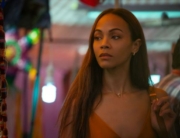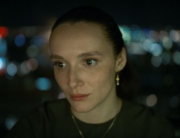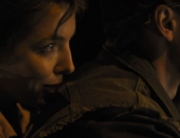In 1962, when Jamaica gained independence from the United Kingdom after 307 years of colonial rule, no one could’ve foreseen the massive issues of class inequality, gang wars, poverty, and overall chaos that the numerous government changes brought about, and which still can be seen in the present day. In order to make a living, residents started organizing their own street parties for money, which they called sound systems, where they tested, among other styles like ska, rocksteady, and a new take on calypso and rhythm and blues, reggae.
Many sound system members also belonged to gangs and dealt drugs so they could get money for new equipment. Some gang leaders also owned independent record labels that made the music, which got played and distributed at these gatherings. The illegal drug trade eventually made it back to London, the root of the problem, where many Jamaicans had migrated during the 1970s and 1980s. This dreadful vicious circle, caused by years of colonization, is depicted brilliantly in Yardie, Idris Elba’s directorial debut.
Presented as an addictive slice of historical life with vivid colors, it can be viewed as a City of God from the Caribbean set to a vibrant reggae soundtrack. Yardie (Jamaican patois for gang member) tells the story of D, an adolescent boy affected by the hostile environment of his hometown. He aspires to be a dancehall singer, but the dream is affected deeply when his older brother and DJ, Jerry Dread, is murdered while acting as a peacemaker in a gang war.
Ten years later, caught between his life goals and the necessity to survive, the adult D, played with intensity by Aml Ameen, starts working under a Kingston don and music producer King Fox (Sheldon Shepherd, in a convincingly menacing role). Faced with a task of delivering coccaine to Rico (Stephen Graham), a London-based Jamaican kingpin, D arrives in London and hours later renages on the exchange and instead makes a deal with the Turks, who control another part of East London. In the meantime, D will reconnect with his past in the form of Yvonne, an old romance brought to life by an electric Shantol Jackson, and their daughter, who he’s not seen since she was a baby. This in turn will lead to personal redemption and retribution, which will uncover a gritty truth in the process.
Yardie plays out like a personal project for Elba, who was born and raised in England. Even if the redemption factor comes into the story late and feels second-hand—from a tirelessly optimistic D to some scenes that might have been better off on the cutting room floor (the intervention of Yvonne in D’s violent search for his brother’s assassin)—the viewer faces having to decide whether the brother’s death was affecting D all along subconsciously or if this was the life he was meant for. Though the story line may not break new ground, it’s still a good sociological effort.
At the end of the day, we’re all history’s puppets.







Leave A Comment